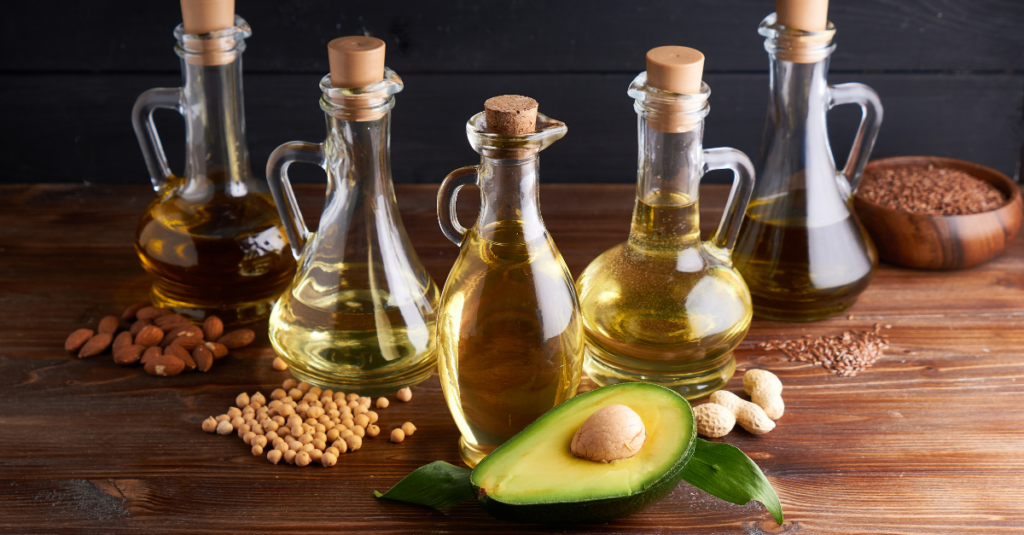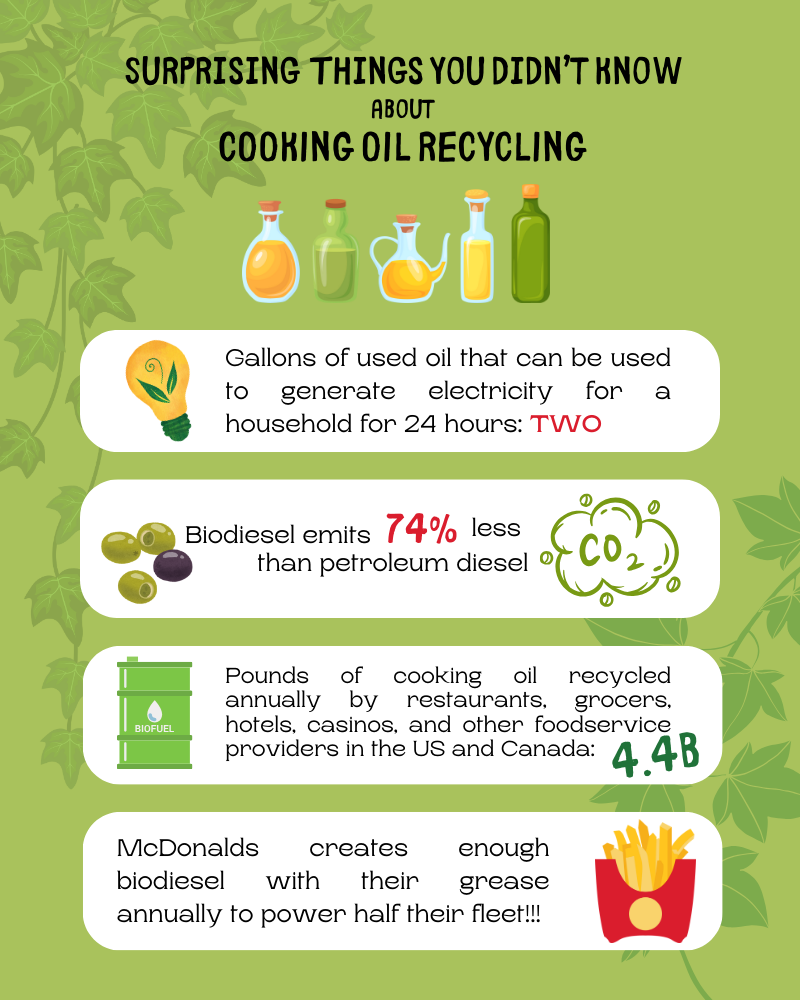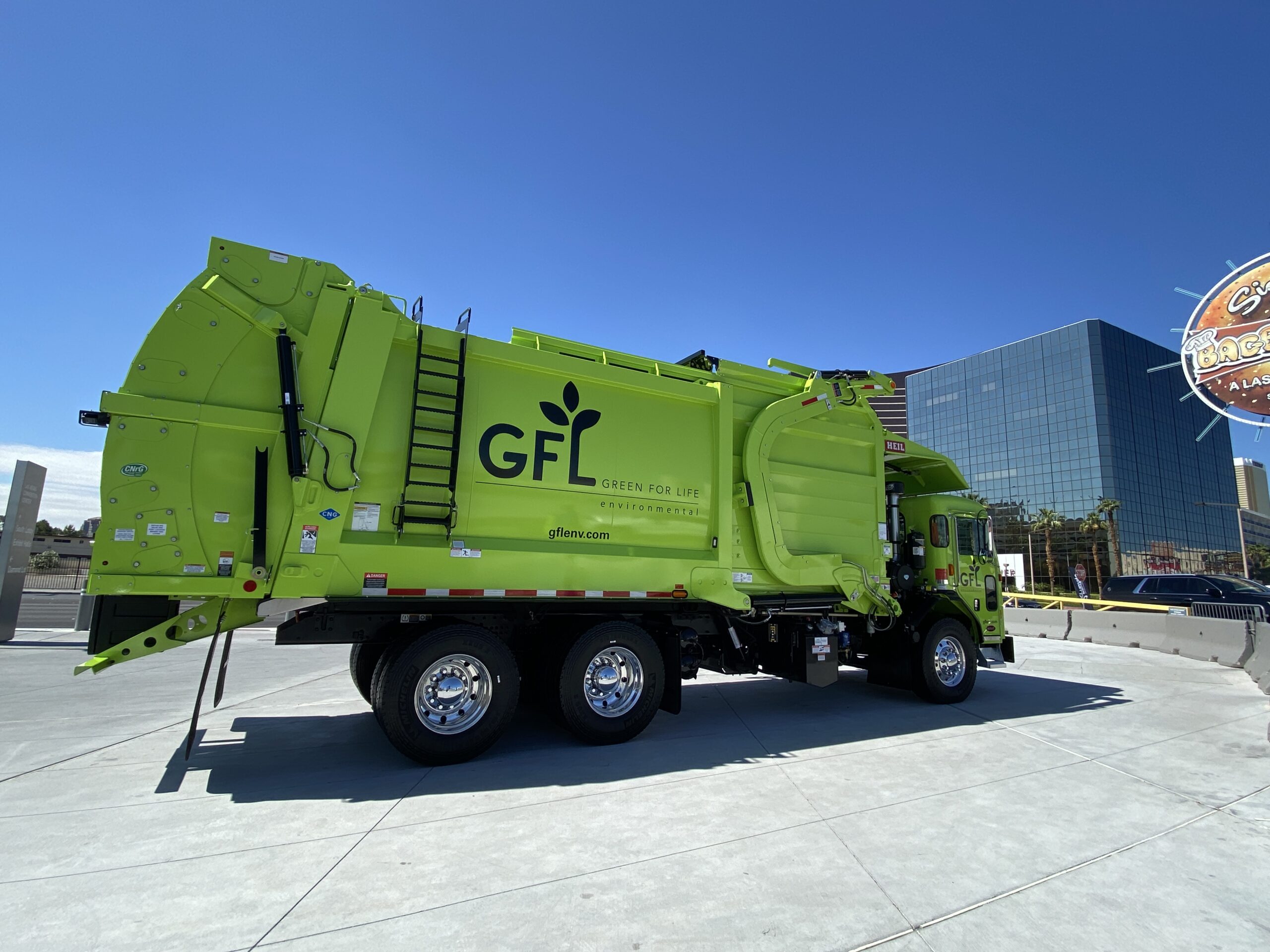PopUP CleanUP now offers oil recycling for large scale events as part of our efforts to encourage sustainability. Cooking oil, which was a luxury product used by the wealthy until industrialization changed the agricultural industry in the later 20th century, is harmful to the environment, detrimental to plumbing, and requires special handling and cleaning.
Why should you recycle cooking oil from your event? As diverting as music festivals and sporting competitions and branding activations are, events create a significant carbon footprint and generate vast amounts of waste. The biggest culprit of that waste is food production. For every meal a guest has at an event, there is a corresponding one pound of food and packaging waste that accompanies that meal. And this does not include the oil debris left over from preparation. Everyone loves a great event except Mother Earth.
Anthropologists have found olive oil decanters dating back to 3500 BCE in the Mediterranean region, and some sort of cooking oil has existed in equatorial cultures like the Mediterranean, Mesopotamia, and South Asia for millennia. Northern Europeans, by contrast, tended to gravitate towards lard and butter for cooking. Many civilizations leaned on cooking oil and animal fats for frying, baking, sautéing, and other manners of cooking because grease permits higher temperatures for cooking, is flavorful, and reduces both burning and uneven cooking.

However, its cooked byproduct can clog kitchen pipes and back up sewer lines. Over time, grease will coat the pipes and once that build up hardens, the pipes will eventually crack. Even more economically crushing, oil that leaks into sewer lines makes drainage impossible and leads to sewer overflow in the streets. In fact, the number one reason for stopped up sewer pipes is cooking oil that has been incorrectly disposed.
Now imagine you are at an event, outside, like a food festival, and each of those trucks is generating gallons of cooked grease. Where is it going to go? The last thing you want is to dump it in the ground. That can leach into groundwater, poisoning plant and animal life, and creating brown spots where greenery cannot grow. If you pour it into a sewer drain, you have guaranteed the risk of pushing feces into the street and possibly into waterways—which is not only a biohazard but also the source of devastating illnesses like cholera.
That’s where oil recycling comes in. Properly recycled oil prevents environmental contamination as well as unexpected costs for repairing infrastructure. It’s also an important landfill diversion strategy as the event industry inches its way towards zero waste.
The process for recycling oil involves the following steps:
- Strain your oil through a sieve to remove larger food scraps. This prevents molding and bad smells.
- The oil must be disposed into a barrel or container of either glass or metal to cool to less than 115°F. Do NOT use plastic as it is predisposed to cracking. NEVER pour cooking oil into a sink or disposal (although small amounts of oil can be neutralized with cold water to prevent sticking to pipes), into the ground or a sewer.
- Do not store for longer than three to four weeks.
- The oil is transported to a recycling center where it is heated and filtered to removed particles..
- It is then separated into grease, water, and any remaining solids in a waste centrifuge and then purified.
- If it’s going to be transformed into biodiesel, it undergoes a chemical process called trans-esterification.

Oil recycling has many additional benefits. This nascent industry has created jobs in the fields of engineering, technology and transportation. In fact, restaurant oil recycling companies generated upwards of $1.64 billion in 2023. The main products created by recycling, biodiesel and renewable diesel, which produce 90% fewer emissions than petroleum-based fuels, minimize pollution. Our use of plant based fuels reduces American reliance on foreign oil production from countries like Russia and Saudi Arabia, keeping the economic benefits in country. And recycling oil also provides base level ingredients for many other products including cosmetics, soaps, shampoos and moisturizers, paints, detergents, furniture polish, and animal feed.
(Just a helpful warning: while motor oil can also be recycled, don’t mix it with cooking oil since they require separate processes to recycle. Also, never pour cooking oil or used cooking oil directly into your gas tank. This could ruin your car!)
Most importantly for our work, oil removal helps keep your kitchen or food truck clean! If you’re having a food festival or catered event, let PopUP CleanUP know how we can help by providing oil recycling to make your event more sustainable. Mother Earth will appreciate the effort.


